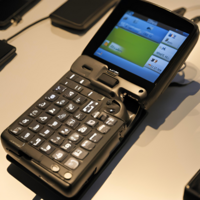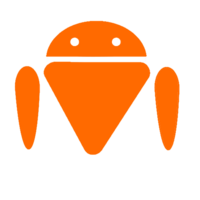Ven (operating system)
 Wordmark and logo used since XXXX | |
| Developer | Ortra Inc. |
|---|---|
| Working state | Current |
| Source model | Mixed-source |
| Initial release | December 16, 2008 |
| Marketing target | Smartphones, Tablets, Cars, Smart TVs, Smart Watches |
| Available in | English |
| Official website | ven.ortrainc.mk |
Ven is a mobile operating system (32-bit and 64-bit) based on a custom kernel that is designed primarily for touchscreen mobile devices such as smartphones and tablets. Ven is developed mainly by Ortra Inc., with them open-sourcing certain parts of the OS and keeping other parts closed-source, which has been denounced by the international community. Ven was an idea conceived by the company to try and expand to a fast-paced and rapidly developing mobile industry. The idea was for a "modern phone" built to do more than just talk and text, in an easy to use interface. They imagined an all-purpose phone that gave you a reason to take it with you on the go. The company would then go on to develop the OS and partnered with Riduur Corporation to incorporate it in the nations' first internet-connected phone, the Riduur Internet Phone.
At its core, the operating system is known as Project V. Most devices run on the proprietary Ven version developed by Ortra, which ships with additional proprietary closed-source software pre-installed, most notably Ven Communication Services (VCS) which includes core apps such as the Ortra Browser, the digital distribution platform Ortra Nexus, and the associated Ortra Nexus Services development platform. Usage of Project V on a commercial basis requires that all code written be published and that permission of Ortra be requested. Usage on a personal basis is free of charge without royalties or permission. The "Ven" name and logo are trademarks of Ortra and are prohibited from being used by any device without explicit permission.
13% of all mobile phones active today in the world run Ven or a variant of it. Domestically, 29% run the OS, and over half of the phones run the stock version of Ven.
History
The concept of a modern phone came to be in 1998 when Riduur was working on their next phone, the Riduur G1. Riduur had decided to experiment with a device that could text by using the built-in microphone and navigate just the same for people with accessibility needs. These features would be partially implemented on the G1 and then fully implemented on the G3 launched in 2001. The features were highly successful, and Riduur became known as the innovator on that front.
Innovation on the concept slowed after that, and Ortra CEO Dimitry Asalov knew that there was bound to be "missing pieces", including custom apps and productivity. PDAs were for productivity and phones were for communication, but Dimitry thought about the potential of combining them and then adding in additional functionality. This led to Project X being born.
In early 2007, Ortra announced at the annual computing expo the development of "Ven", a planned mobile OS that supported touchscreen navigation, talk-to-text and had built-in apps including a calculator. People were skeptical at first as Ortra was new to the field and the inclusion of a calculator app caused a riot among the business computing industry and talks of antitrust suits began to loom. In September 2007, Ortra demoed a concept of Ven for the first time to public appraisal, however the calculator app was noticeably missing. In December 2007, Riduur and Ortra announced a partnership to bring Ven to the next Riduur phone, the Riduur Internet Phone, at the time a product that had everybody's eyes on it.
It was revealed in February 2008 that Ortra may break off the partnership after a "refusal to be fluid in development", however a month later Ortra reaffirmed the partnership. The world's first public demo of the Riduur Internet Phone occurred in May 2008, using a development version of the Ven OS. The calculator app was present at the demo, and both Ortra and Riduur refused to comment on its earlier exclusion. The phone according to reviewers at the time was "overhyped and underwhelming", however they did praise the Ven OS for "living up to its moniker". Riduur responded to the criticism by cancelling the partnership and scrapping Ven, however the public backlash and threats of a lawsuit by Ortra for breach of contract quickly reversed that.
In September 2008, two months before launch, the product was sent out to reviewers to demo along with a free month of Bat-Briik's phone service paid for at Riduur's expense. The reviews were much different this time around, with the physical keyboard gone and touchscreen calibration "500% better". It would then launch on December 16th, 2008 to wide critical acclaim including internationally, which hadn't been able to use or demo the product until now. The government offered Ortra funding for future innovations on that front but they declined stating "We would like to not be limited by government-mandated ideas". The OS would later be partially open-sourced on April 3rd, 2009 to help integration of Ven into more devices and to help innovation prosper.
International Expansion
Device Manufacturing
Etymology
Ven means "Future" in Makuri and is prominently promoted by its mascot.
Features
Interface
Status Bar
Along the bottom of the screen is a transparent status bar, showing information about the device and its connectivity. This status bar can be pulled (swiped) up from to reveal a notification screen where apps display important information or updates, as well as quick access to system controls and toggles such as display brightness, connectivity settings (WiFi, Bluetooth, cellular data), audio mode, and flashlight. When you are in an app, it is also how you can close the app, go home or see all running apps by pressing and holding on the middle indicator on the bar. Vendors may implement extended settings such as the ability to adjust the flashlight brightness.
Hardware
Development
Security and Privacy
Backdoor Scandal
Licensing
The source code for Ven is mixed-source, meaning some parts are published whilst others are private. Ven is developed by Ortra and they openly release the UI (frontend), the source code to some stock apps (including Settings), the language parser (for adding additional language support) and the notification stack. Ortra cited the reason for mixed-source as "protecting intellectual property rights and user security". Only the base Ven operating system (including some applications) is open-source software, whereas most Ven devices ship with a substantial amount of proprietary software, such as Ven Communication Services, which includes applications such as Ortra Nexus and Ortra Search. These applications must be licensed from Ortra by device makers, and can only be shipped on devices which meet its compatibility guidelines and other requirements.
Use Cases
Mascot
The mascot of Ven is an orange extraterrestrial robot, as related to the software's name because of it looking futuristic. The Ven team at Ortra reportedly created the mascot out of a mesh of ideas, and calls it "extraterrestrial" due to its lack of legs.
See Also


